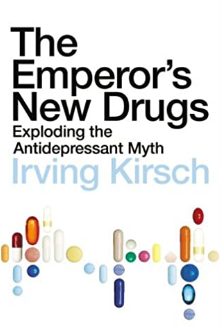Are we headed for a tsunami of mental health issues?
His name is Tony and talks like what he is…..a London geezer.
But his easy manner put people at ease and he has a way with those who work for him.
Tony is a manager at a very large kitchen show room and has around 22 people working for him.
He is for a check up on his back and says he has been checking in with staff now they are back in store and asks them “how are you?” and they say “fine” or “not bad”, but then he asks again and “but how ARE you?” and leaves a nice long gap for the truth to come out
It turns out is enough for 25% of his staff to start crying.
As as result of lockdown and COVID, Tony has 25% of his previously furloughed staff now verbalising mental health issues.
As we enter the easing of lockdown (for the last time? I have my doubts….) are we are easing into what might just be a tsunami of mental health issues that could cripple the economy as we are trying to get it back on its feet.
The reality is before COVID we were on something of a emotional knife edge.
Sadly the government has deliberately cranked up the fear factor to get the public to behave in the way they feel is best. The issue being we simply do not trust our politicians and so if they ask us to follow new rules we often do not.
I can see the issues from their POV, though from a electorate POV if your MP’s consistently tell half-truth with statistics and dodge answering the actual question in interviews, with well documented histories of corruption, well you can see why we don’t trust them.
So in March those lovely people at SAGE who are not so much in bed with big pharma, big tech and Bill Gates, as having a full on orgy with them, decided to start a fear factory.
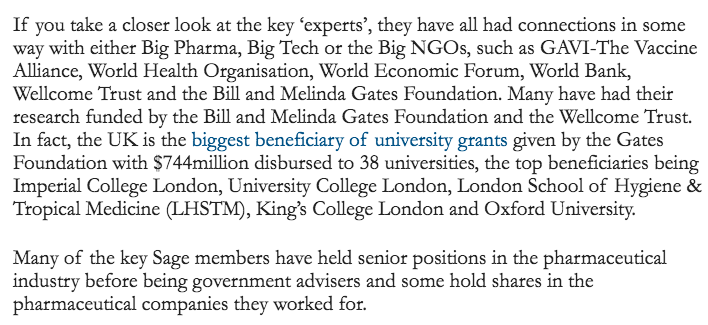
Increasing peoples sense of personal threat to get compliance was a key.
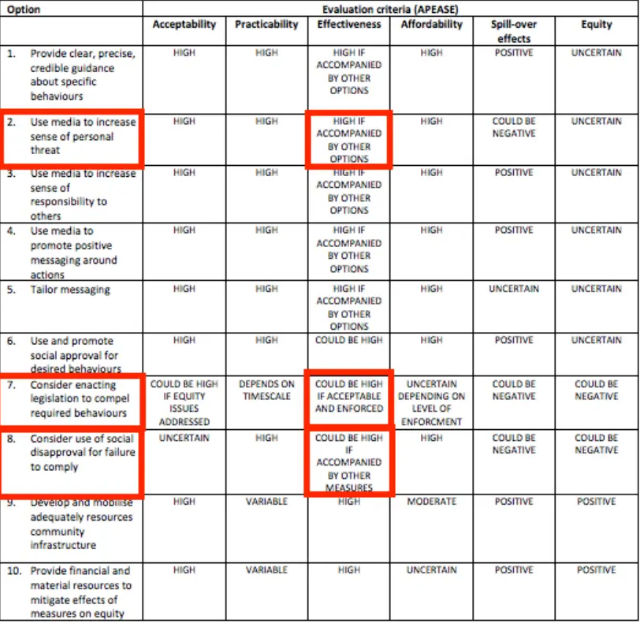
And in cahoots with the main stream media and the tech giants they have certainly done that and suppressed any dissenting voices.
So here we are 1 year in and another patient who has 12 managers he manages, has 25% of them terrified of coming back to work.
They are not vulnerable to COVID, they are simply de-socialised and scared of going back into the real world with human interaction.
Now there are many things we can and should do for people directly in the emotional side of health from CBT, counselling, mindfulness, journalling, EMDR the list goes on and on.
But I know (having read the scientific literature extensively) that lots of people are vulnerable to psycho-social stress causing mental health issues because on a metabolic level they are in real trouble.
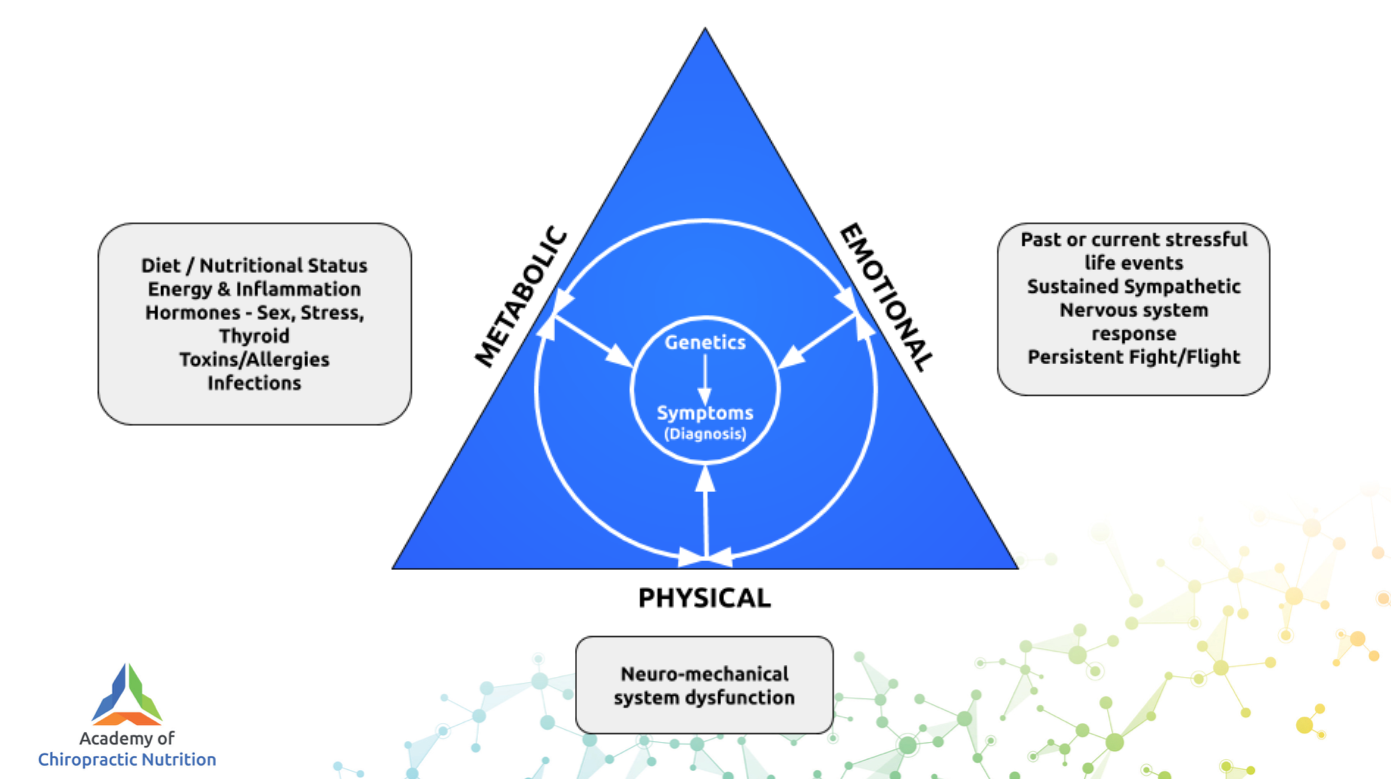
The lack resilience to the modern (and messed up) world.
Remember the analogy of standing on one leg and being “sensitive” to little fingers pushing you over?
Let’s be fair, the lockdown is more than a little finger, probably a thumb at least, possibly a fist.
I think we should do everything we can to help them re-socialise and ideally re-educate them about the actual risks COVID poses in their age range.
According to the WHO survival rates under 70 years old are 99.95%, under 50 the number is even higher. (I know that statistics of death rates from COVID vary a lot but we know for sure that the vast majority of people dying are over 50 and in poor metabolic health)
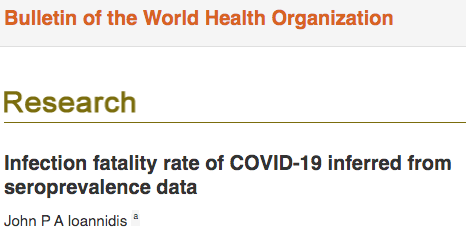
![]()
But let us also try to give them a basic foundation diet that gives their brain chemistry a chance to work normally.
Remember you are just a series of pathways starting with building blocks and converted with co-factors running enzymes with a product at the end.

If you want to make serotonin you will need to eat quality protein to give you tryptophan and have enough co-factors to make it convert to serotonin.

Less building blocks and co-factors = less serotonin.
Serotonin gives us relaxation, contentment and positivity.
And combined with dopamine and noradrenaline we get a stable mood and good cognitive function.
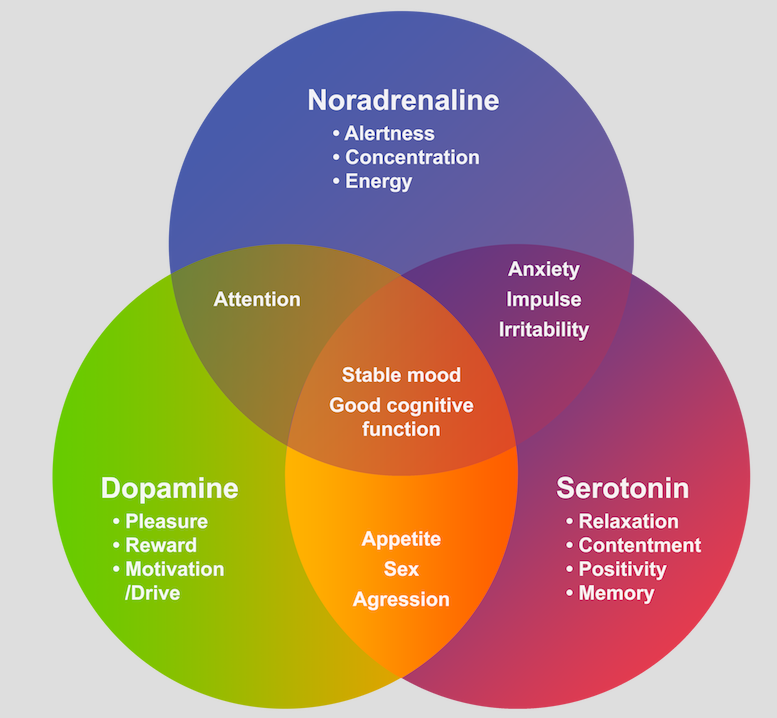
When you read most nutritional, diet based research there are some things that even a vegan and a carnivore agree on: Ultra-processed foods, high in sugar and refined flours and hydrogenated fats are just bad for you.
You can read more about those in this newsletter:
https://lessons.
It actually doesn’t matter which diet you go for, just as long as it doesn’t contain those things or bucket loads of caffeine, they will feel better.
Get them on a whole food/real food diet with vegetables like the colours of the rainbow, low GI root veg, a blend of saturated and omega fats and if they eat them, animal products from grass fed, cared for animals.
Cut the sugar, cut the caffeine (for the most part), minimise the alcohol (before they say it, no wine is not “good for you”, the red pigment in grapes might be good for you but alcohol is poisonous to every cell in your body)
Ultimately I teach members of the course to aim for:
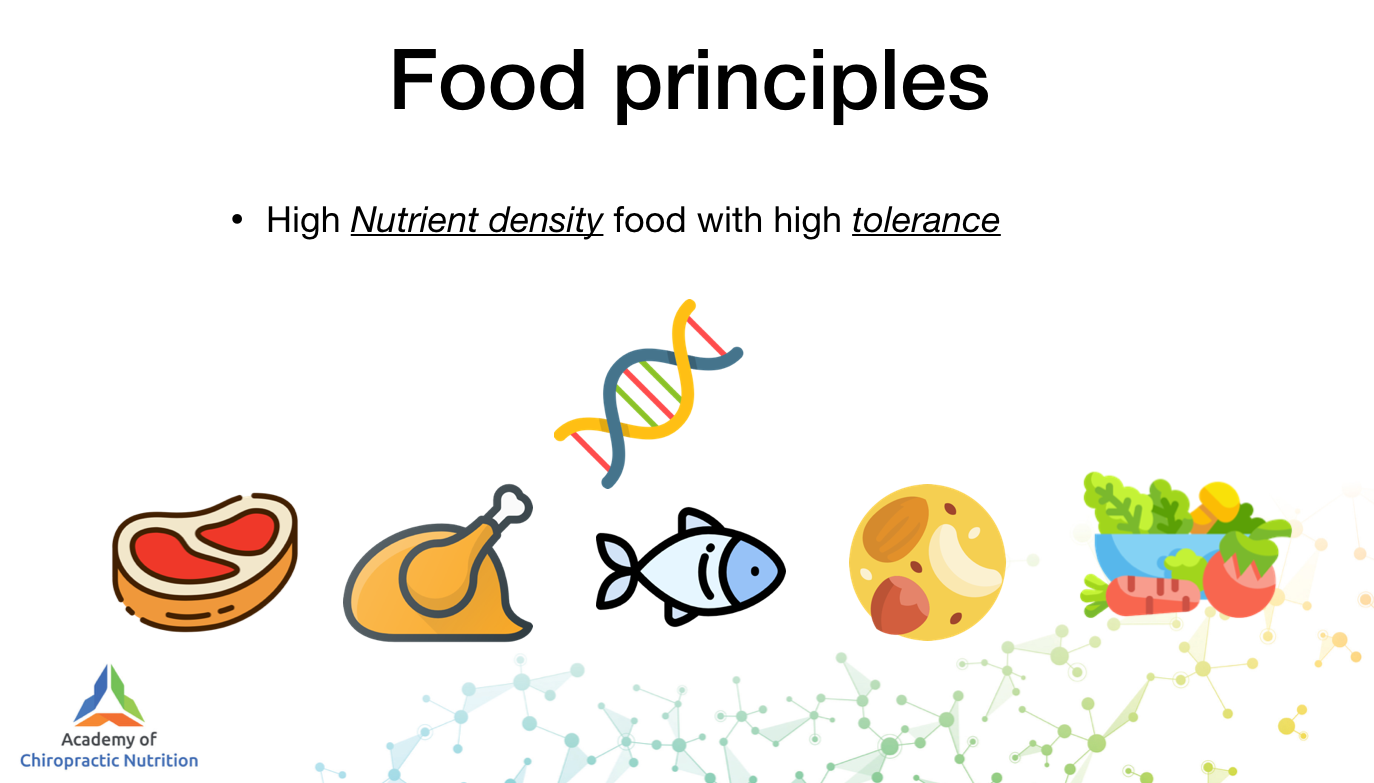
The immune tolerance is important because:
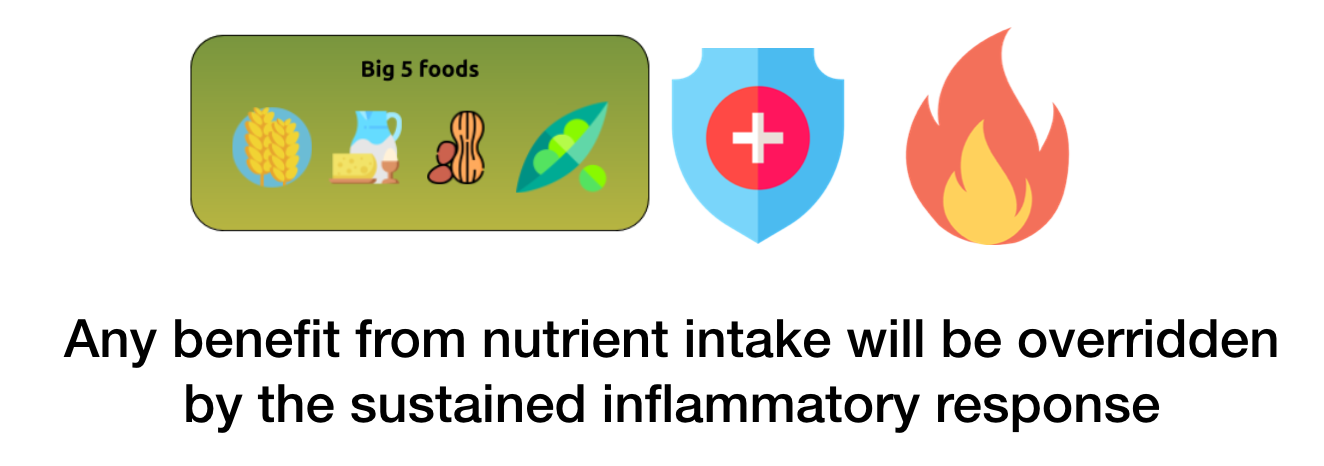
Remember inflammation ruins your brain chemistry, I talked about this for the Academy of Physical Medicine a few months ago:
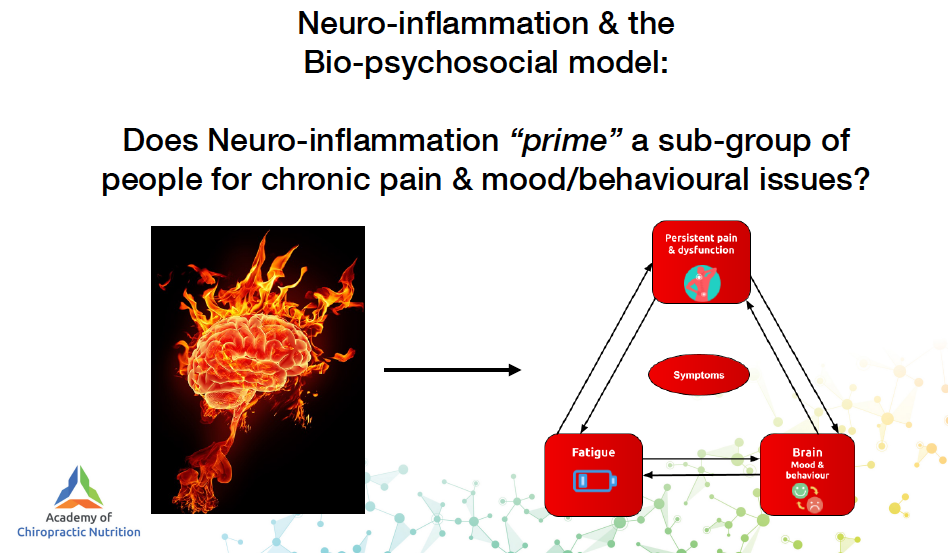
The research is very clear.
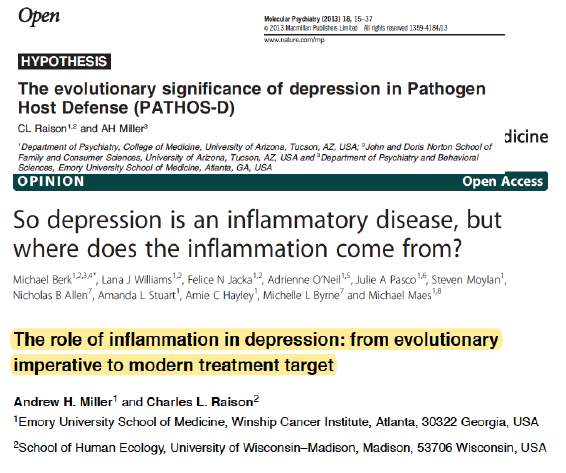
A sustained low grade inflammatory response primes the system along with low nutrients levels and creates altered levels of neuro-transmitters, and then along comes psycho-social stress from lockdown/COVID related stuff and they are well and truly flat out in a mental health sense.
The venn diagram below shows how we must use an integrative approach to patient symptoms, rather than a linear approach. Patient issues are complex and affect each other in a web like system.
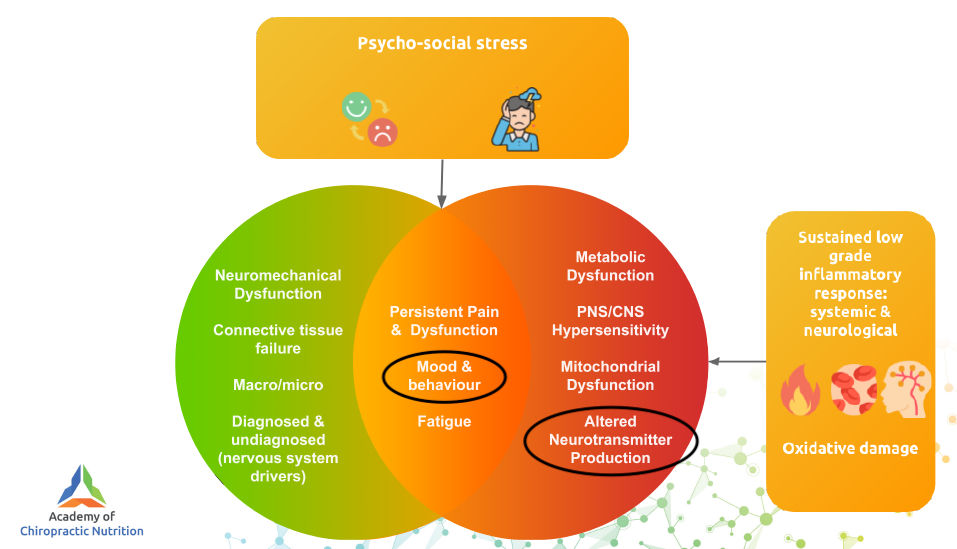
Diagnosing someone with “depression” because they are “stressed” lacks any depth of understanding. If “stress” caused depression per se, the whole country would be depressed.
Question is why can some people thrive on stress while other wilt?
There are some specific protocols using amino acid therapy for neurotransmitter balancing but those are reserved for members only, sorry we have to have some secrets.
So keep your eyes peeled for people who are “fine” or “not bad” and maybe do a Tony and ask twice, see what happens.
Maybe those lifestyle shifts and some supplements will be enough as we exit lockdown to get them standing on two leg and that bit more resilient.
ACTIONS TO TAKE:
– Get patients to cut out most of the ultra-processed guff, sugar & caffeine and eat some real food and ask them to notice how they feel.
– Move that body, we have done too much sitting in lockdown, move the neuro-mechanical system and get some endorphins pumping.
– Keep an eye out for patients verbalising “I have mental health issues” that are actually just verbalising their emotions but openly for the first time.
This happens in mostly in men and younger people (under 30), they have been wrongly lead to believe by social media that you should be “happy” all the time.
In the course of the natural ebb and flow of life you feel the whole spectrum of emotions. This is normal, if a relationship has broken down or a family member has died, you should be feeling sad/upset/angry etc, the emotions they are experiencing are appropriate to the life situation they are in.
It is when the emotions are not appropriate to the situation or are ongoing from past issues, that is a when you could accurately say they have a “mental health issue”, though I am always keen to know the why.
The labelling of peoples mood & behaviour issues as “depression” and wholesale application of selective serotonin re-uptake inhibitors (SSRI’s) is questionable especially if it is a first line therapy.
If you read Irving Kirsch work, there appears to be no difference between SSRI’s and placebo, not that there is no benefits but maybe the mechanisms is not what we think it is.
Check his research out here:
https://www.ncbi.nlm.nih.gov/

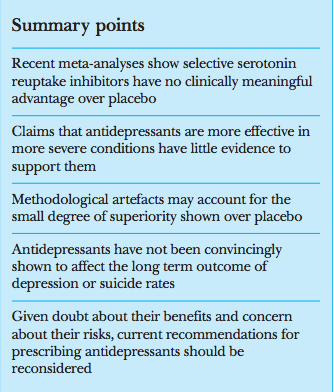
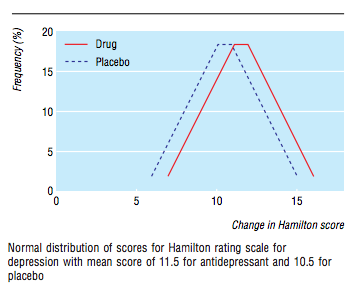
His book is also excellent
